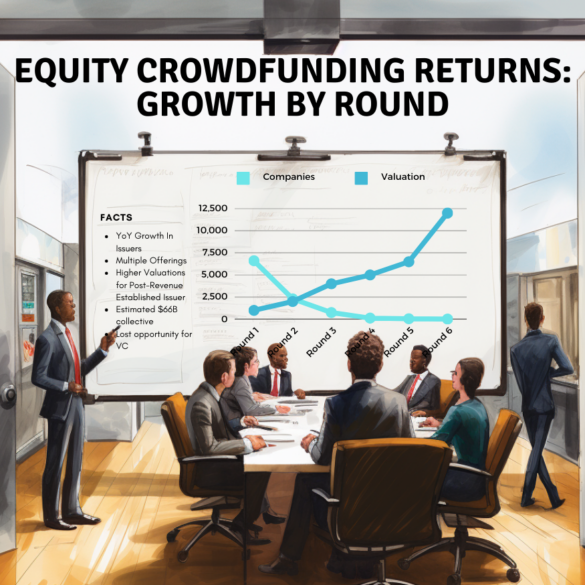The JOBS Act of 2012 heralded a new era in capital raising. Non-accredited investors could invest in the equity of private companies for the first time. More than a decade later equity crowdfunding is booming.
Germany's GLS Bank has launched an equity crowdfunding platform through collaboration with CrowdDesk; GLS Bank will do the due diligence for the platform's investments and CrowdDesk will primarily focus on the technical infrastructure and business services; the deal sets a precedent for bank crowdfunding partnerships in the equity crowdfunding space and will provide company financing for up to 2.5 million euros ($2.67 million). Source
A new report by NextGen Crowdfunding documents increasing use of Reg. A+ as the regulatory umbrella for real estate crowdfunding and other financial offerings; Reg. A+ was finalized in June 2015 as a means for non-accredited investors to access private offerings; companies can raise up to $50 million per year under Reg. A+; across all sectors, 131 companies to date have filed under Reg. A+, with 38% of these filings being by real estate and financial services platforms and many others being IT startups; roughly half of the filers are using "Tier 1" rules for Reg. A+, meaning they will continue to register in individual states as well as at the federal level, and half are filing "Tier 2", seeking national fundraising scope while avoiding the added prudence of vetting against state rules. Source
Monzo has grown its customer base over five times in one year and used different methods that help keep that base coming back; they ask for community feedback, open the company for equity crowdfunding rounds so users can invest and they host small, intimate events; 80 percent of their growth is word of mouth, the remaining 20 percent is through ads on Facebook and Twitter; “The biggest challenge is that we’re growing very fast — our customer and employee numbers are growing fast — we want to keep the customer focus, how we operate a transparent customer growth approach, and how we do that at scale,” as Tristan Thomas, Monzo’s head of marketing and community, tells TearSheet. Source.
While the passage of the JOBS Act in 2012 helped to spur crowdfunding into an exciting industry, questions have continued surrounding investor protections and the legitimacy of companies using this method to raise capital; SeedInvest CEO Ryan Feit recently told the New York Times: "I'm legitimately concerned that a lot of people are going to be losing money; investing in startups is really risky, and it's very different than buying a used couch. We definitely do not think you should treat it like Craigslist."; investors don't necessarily understand the investment and companies are not following the rules fully, causing many in the industry to legitimately worry about the way forward. Source


